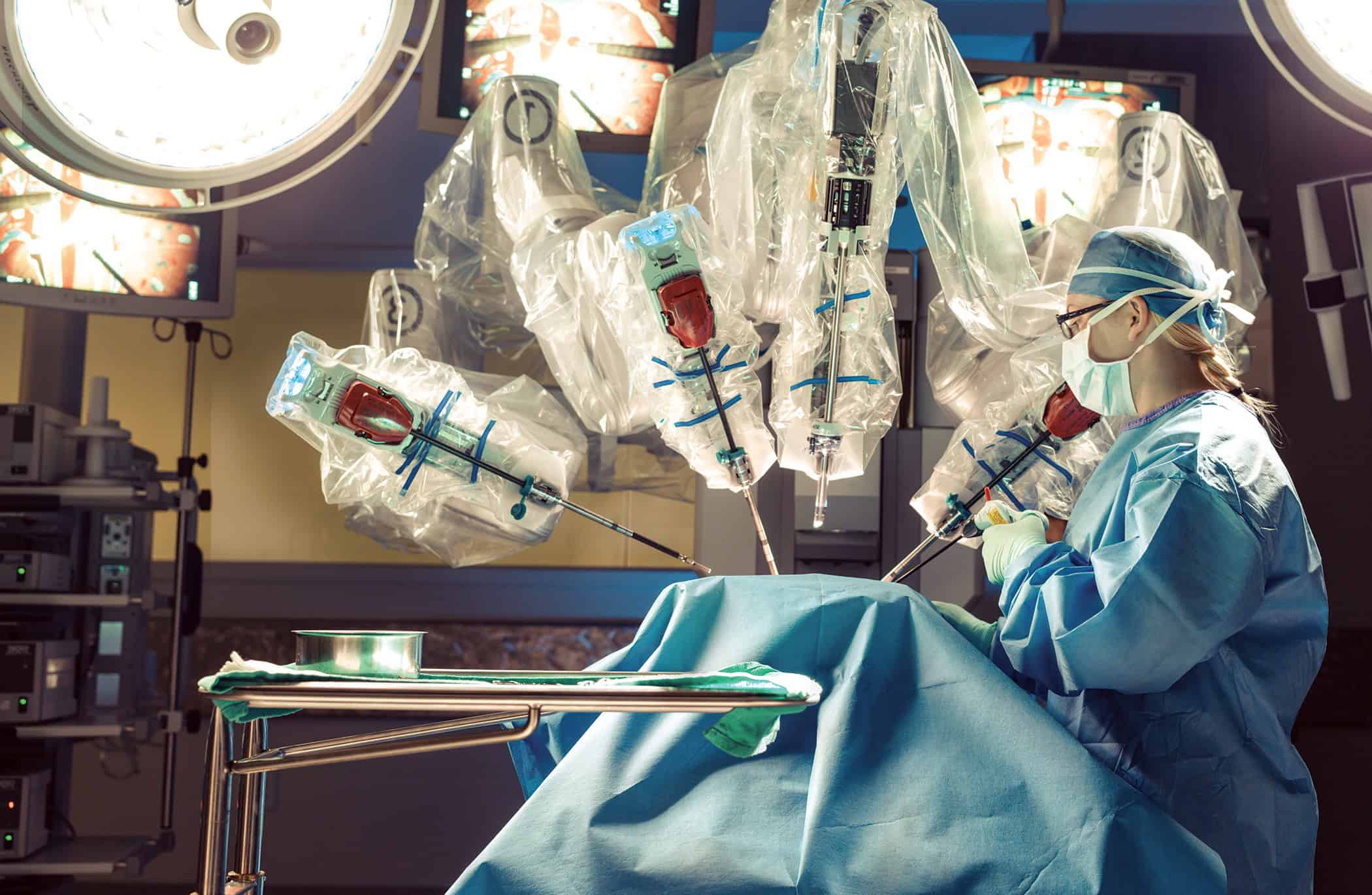Robotic surgery is now the standard of care for treating many diseases of the urinary tract. While robotic surgery is used primarily for the treatment of urologic cancers, many benign conditions can be treated with robotic surgery, as well.
Using state-of-the-art robotics technology, University Hospital’s team of experienced urologists treat the following conditions in this advanced, minimally invasive fashion:
- Prostate cancer – nerve-sparing robotic prostatectomy (removal of the prostate)
- Kidney cancer – robotic partial and radical nephrectomy (removal of the kidney)
- Bladder cancer – robotic partial and radical cystectomy (removal of the bladder)
- Urinary diversion – robotic neobladder and ileal conduit (reconstruction of the bladder)
- Ureteral cancer – robotic segmental ureterectomy (removal of part of the ureter) and nephroureterectomy (removal of the kidney and ureter)
- Strictures (narrowing) of the ureter or urethra – robotic ureteral reimplant, ureteral and urethral reconstruction
- Fistula repair – Corrections of abnormal connections between bladder and colon in all patients and corrections of abnormal connection between the bladder and vagina in women
The advantages of robotic surgery in urology are numerous, including smaller incisions and better cosmetic results, less post-operative pain, reduced blood loss during surgery, lower infection risk, shorter hospital stays, and improved patient outcomes.
In cooperation with our partners at Rutgers New Jersey Medical School, the skilled surgeons of the Department of Urology offer caring, fellowship-trained, highly skilled urologists who are in a constant pursuit of excellence.
Surgeons
- Evan Kovac, MD
- Robert E. Weiss, MD

